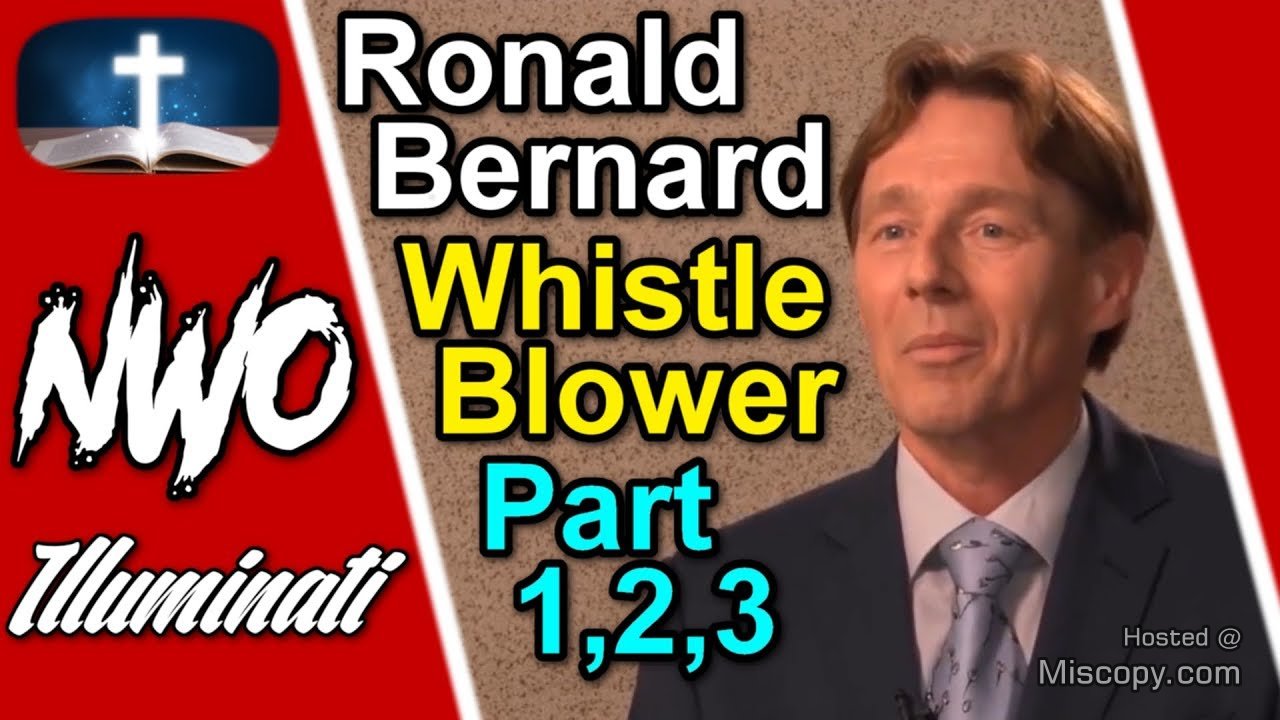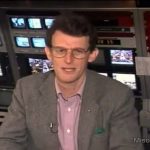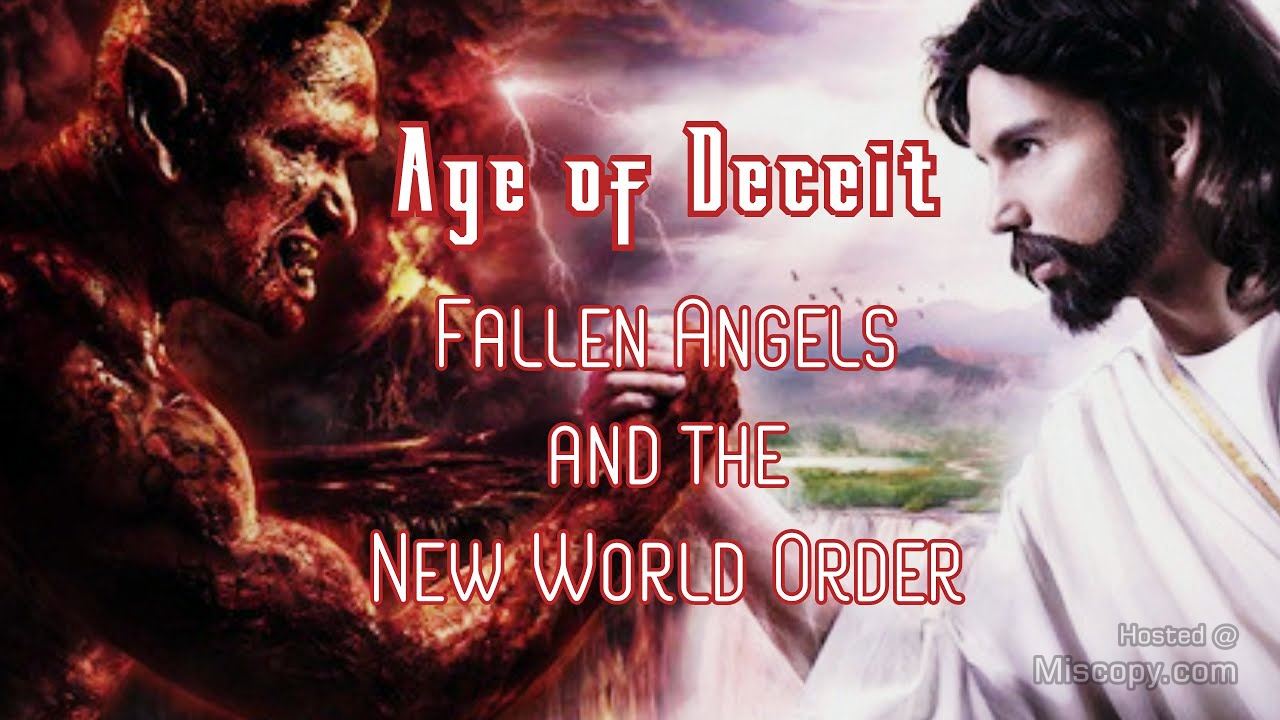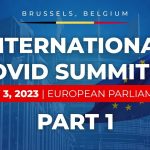In this interview, Ronald Bernard, a former Dutch banker, exposes the elite’s involvement in the global financial system. He discusses how the elite has stolen the real value of money, leading to national debts and inflation. He claims that the interest rate at the top of the pyramid is added to the capital, and the rules, laws, and organizations ensure that the bottom layer stays in place to avoid the wealthy becoming overpowered.
Bernard highlights how the elite uses gas prices and inflation as their primary methods for depleting the masses’ purchasing power and extracting their value. Additionally, he discusses the European Central Bank’s role in creating new money every month to increase inflation and steal value from the population. Bernard calls out the elite for their deceptive and exploitative methods in the financial and economic systems.
Later, Ronald Bernard talks about the European Stability Mechanism (ESM) and its role in the financial crisis, arguing that it has not been used as intended but rather by banks for their own gain. He then talks about the lack of change in the current political system, calling it a puppet system where individuals start working for the higher powers once in a coalition, rather than the people.
He also discusses his experience with becoming a social entrepreneur after going through trauma processing and his involvement in an inner circle of a religion that involves organ trafficking and child exploitation. He talks about the difficulty faced in disclosing these iniquities and the need to continue challenging unjust practices in the world.
Detailed Description
In the interview, which is in Dutch but dubbed over in English, Ronald Bernard talks about his background and experiences in the financial sector. He has always been an entrepreneur at heart and enjoys the independence it provides. While working in import/export, he encountered different currencies and had to trade through brokers, and his broker suggested he consider making more money through the financial world by trading in assets to make money from differences in interest rates. He agreed and took over the broker’s spot but asked for a commission. The broker warned him that it came at a great cost and that he couldn’t do it with a clear conscience. However, Bernard was already used to putting his conscience in the “freezer” as a survival mechanism due to his difficult upbringing.
He goes on to discuss his experience working in the financial world and the small, circular nature of the global flows of money. He explains that banks and other financial institutions use certain financial constructions and international legislation to move money in a way that makes everything appear to be legitimate to supervisors and regulatory bodies worldwide. He also talks about his role in changing currencies and the use of money in the retail market. He uses the example of the Iraqi dinar, which was backed by oil and had value officially, to illustrate the importance of understanding the relationship between money and oil in global trade.
When exposing the elite’s involvement in money laundering and how they manipulate society through rules and regulations, Ronald Bernard recounts his experience working as a banker in Germany and their task of processing cash in such a way that it can be legally reintroduced into the money circulation. Bernard revealed that the bank is filled to maximum capacity with dollars and needed to be emptied to make way for German marks. Bernard also highlights how Iraq’s representatives wanted to remain free from accusations and were all friends on the same side, despite appearances to the contrary. Bernard’s job was to process the cash without being detected, and he had to have nerves of steel to do so. He played at the highest level for about five years but eventually gave up, seeing it as an intense moment in his life.
Ronald Bernard then discusses his experience working in the financial world and the knowledge he gained about the real world through his clients, which included banks, governments, multinationals, and even terrorist organizations. He talks about the connections he saw between these groups and the flows of money that went from one place to another. Bernard also discusses the role of secret services and how they are involved in the financing of walls, creating conflict and misery in the world. He reflects on the realization that the entire world as we know it is just an illusion, something he learned through his work in the financial world. Despite this knowledge, he acknowledges that there were things happening in his life that he did not expect, such as his freezer malfunctioning. Overall, Bernard describes the financial world as complex and full of hidden truths, and his experiences within it as eye-opening.
He also discusses his involvement in massive dumping of currency which reduced the value of Italian businesses and caused them to go bankrupt. He talks about a successful deal with the Italian lira and how it resulted in the company going bankrupt. He then shares his own personal experience with volunteering with a religious group that played with dark and demonic imagery, including Satanism. He acknowledges the fact that some people take these things seriously and that it can be difficult to speak about due to his conscience not being perfectly aligned with these circle’s beliefs.
Ronald Bernard goes on to talk about how he came to refuse assignments and became suspicious of the world around him. He mentions blackmailing and the use of mind-control in politics and business, and discusses how he studied theology and psychology to make sense of what he was experiencing. He also mentions the Protocols of Zion and recommends that everyone read and study the document.
The use of fear and deception to control humanity is also discussed, and then he talks about the luciferian entity and how it wants to divide humanity based on politics, skin color, and religion, in order to weaken them. Bernard highlights the importance of standing up for ourselves and our beliefs in order to overcome this entity and its agenda. He encourages his listeners to open their eyes to the true creation, one that is based on love and unity. Bernard also discusses the concept of a powerful being that can appear with just a little light, and that can help us overcome a long period of darkness.
After that, he discusses his near-death experience and the intense experience he had upon his departure from the world of banking. He acknowledges that he has seen how the elite were working on him and talks about the physical and emotional torture he experienced. He also talks about the realization that he is not just his body but a vessel in the physical world. He mentions that his end of the first life was so extreme that he could not handle it any longer, but his mind power was so strong that it only happened to his own body. He also talks about how he had wished to take drugs and alcohol to make his end gentler, but we know that most colleagues in the banking world are already dead by now. He then talks about the pyramid-shaped financial system used by the elite to control the world’s money and banks. The pyramid-shaped financial system, headquartered in Switzerland and Belgium, has a system that starts at the top with eight thousand eight or five hundred people giving orders, and the mechanism is a pyramid-shaped system that propagates downward to be executed.
He goes into detail discussing the Basel Institute for Banking Supervision (BIS) and its role in the global financial system. The BIS, originating from the Netherlands in 1930, is recognized worldwide as the headquarters of the financial world, with every central bank being a member of this civil organization. The headquarters agreement describes the BIS’s range of power, authorization, level of operations, and output. The BIS has complete immunity from everything on earth, including its own police service, making it a fully recognized immune state beyond the grasp of any rules. The speaker also discusses the BIS’s role during World War I, where it facilitated the trading of gold between enemies. The BIS also calculates the amount needed for countries to ensure they will never be able to pay off their debts, enabling them to increase their grip on countries or continents.
The speaker then talks about the city of London as a financial hub and a player in the global financial system. He mentions the concept of a free state, where institutions like Vatican City, Washington DC, and the BIS in Basel are immune from regulation and do not answer to anyone. The speaker goes on to explain how money is created based on debt in an economy, and how the interest rate is used as one of the mechanisms to regulate credit and control the financial pyramid. The speaker argues that the continuous stream of debt and interest rates causes a global shortage and contributes to the global misery experienced by people in society.
Ronald Bernard then discusses how the elite has stolen the real value of money, leading to national debts and inflation. He claims that the interest rate at the top of the pyramid is added to the capital, and the rules, laws, and organizations ensure that the bottom layer stays in place to avoid the wealthy becoming overpowered. Bernard highlights how the elite uses gas prices and inflation as their primary methods for depleting the masses’ purchasing power and extracting their value. Additionally, he discusses the European Central Bank’s role in creating new money every month to increase inflation and steal value from the population. Bernard calls out the elite for their deceptive and exploitative methods in the financial and economic systems.
As an informer, he says calculations by economists show that 80% of people pay interest throughout their lives while only 10% receive it and another 10% pay out interest to the system. Additionally, the informer highlights the historical background of interest rates being illegal and punishable by death, but it is now common in Islamic banking, despite the legalization of interest being against Islamic morality. The informer also takes issue with private banks’ influence in the financial system, which he argues has no oversight and is not accountable to the public. Finally, the informer discusses the European Stability Mechanism, an institute created by a vote from the House of Representatives in 2012, and notes that it is a protected, free state with employees receiving indemnification and immunity.
He explains that the ESM mechanism is designed to ensure that any required amount of money, ranging from 10 billion to 100 billion euros, is delivered by the Netherlands within seven days. However, the speaker argues that most of the money sent through the ESM is not reaching the intended recipient countries but is instead being used by banks for their own gain. The speaker uses the example of Greece as an illustration, noting that a lot of money has been sent through the ESM but only a small percentage has reached Greece. Instead, he argues that the money is being channeled through Germany, France, and the Netherlands to its own banks. The speaker notes that the rich are getting richer as a result, while the poor are getting poorer. The speaker also talks about the role of multinationals and pharmaceutical companies in the financial crisis. He argues that these companies are profiting from the financial crisis and that their immunity is allowing them to get away with anything. He describes this as the world’s biggest villains’ dream come true. Overall, the speaker argues that the financial crisis is a result of a system that has been designed to favor the wealthy and powerful at the expense of the poor. He calls on people to become aware of this system and to take action to bring about change.
Ronald Bernard then discusses the current political system and the lack of change in the last 40 years, particularly in political topics such as healthcare and the economy. Bernard notes that political parties are filled with people who are dedicated to their principles and desire to make a change, but once a coalition is formed, they immediately start working for the higher powers rather than the people. Bernard calls these individuals “puppets” and argues that they are responsible for manipulating the media to keep their actions hidden from the public. Bernard mentions several examples of small groups of people who have made it onto political stages but receive little attention from the mainstream media or are otherwise ignored. He believes that the movement of the people is needed to bring about real change to the system.
When discussing his experience with becoming a social entrepreneur after going through trauma processing, he talks about the negative mentality of the Dutch society and how they often break down success that is essential for humanity. Bernard believes that getting clean inside and becoming strong through drama processing is the key to overcoming this negativity and to successfully realizing manifestations. He also mentions the tremendous impact his interview has had worldwide, with over 18 million people watching it, and the current power structure of the financial system being exposed. However, Bernard acknowledges that his focus was initially on himself and his creation, and he did not expect the interview to have such a widespread impact.
In his own words, Ronald Bernard started an initiative in the past, but the fear and lack of trust made it difficult for him to succeed. He mentioned the Protocols of Zion, which he believes are a matter of conscious control and were written in ancient texts. Bernard also talked about how people around the world are praying for teams to support him and his work, while others try to prove that he is a liar. He admits that there are a lot of people who try to use his past as an argument to discredit him, but he believes that what he is doing is important. He also mentions that the fear of change is what keeps people from realizing the truth and that many people are afraid of the truth coming out.
Eventually, Ronald Bernard discusses his involvement in an inner circle of a religion that he believes to be sick and involves organ trafficking and child exploitation. He talks about how he ended up in the inner circle through an invitation from a colleague and how it was initially supposed to be another type of event, but the truth about it was shocking. He also talks about how children organs are taken from the burnout nurses in India, and no one is talking or taking action about it.
This organized trafficking and child abuse he sis operate on a large scale, including cases where perpetrators are acquitted despite evidence of their crimes. He claims that children are damaged from an early age and that allowing such behavior contributes to a sick world and impending war. Bernard urges people to wake up and take responsibility for their actions. He has personally experienced child abuse and has committed himself to protecting the children and making a positive change in the world.
Ronald Bernard emphasizes that his and his family’s privacy are important to them, and that they do not share everything about themselves on the internet. He then talks about the theme of a curriculum vitae (CV) in the Netherlands and how he has not wished to write one about his past life because everything he did in official companies had a deeper layer to it. He also notes that getting a seat on the stock exchange was not just a coincidence but rather a result of many years of being busy and active as an entrepreneur.
He explains that people in circles of power are unlikely to come forward or testify about wrongdoings, especially if it may damage their relationships or reputations. He notes that he has personally recovered from trauma experienced during his time as an insider in the banking industry, despite facing challenges in receiving validation and support for his claims. He highlights the specific challenges of trying to reveal information worldwide, and the many people who may not believe his testimony. Despite these challenges, Bernard notes his determination to continue challenging unjust practices and the need to protect children and demand accountability.
Ronald Bernard concludes the three part interview by speaking about the connection between trade and human trafficking, specifically child labor. He emphasizes the tragic consequences of these practices, with an estimated 17,000 children dying every day from hunger and thirst. Bernard highlights the need for individuals to take action and stand up against these injustices, stating that more and more people are becoming aware and taking action. He believes that this movement could lead to meaningful change in the world.





Leave a Reply